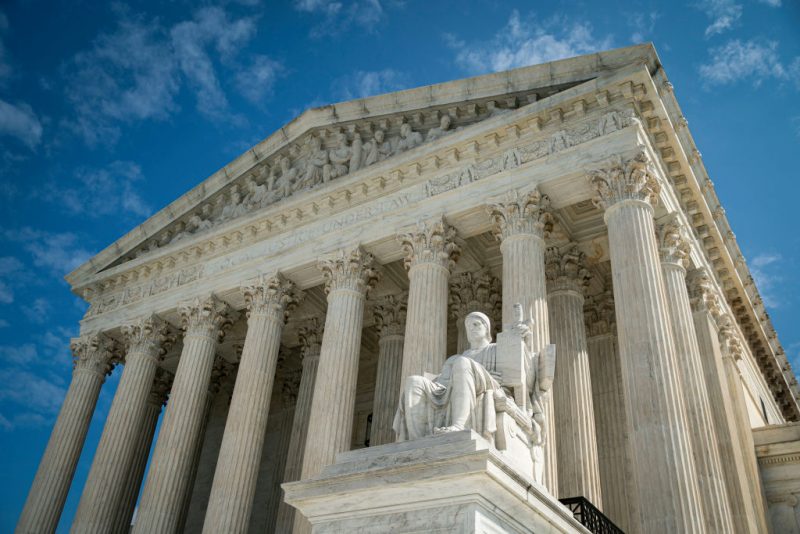
OAN’s Elizabeth Volberding
1:58 PM – Friday, September 29, 2023
The Supreme Court of the United States (SCOTUS) announced that it will hear two cases involving controversial content moderation judgments made by social media platforms in Texas and Florida.
On Friday, the Supreme Court declared that it would make free speech online an emphasis and decide whether laws passed in Texas and Florida can limit social media platforms from removing certain political posts or accounts.
The laws ensure that social media companies will not be able to ban users based on their political views, even if the users violate platform policies. As a result, this will restrict companies from having the ability to enforce their rules.
The Supreme Court will evaluate whether the laws’ “individualized-explanation requirements” and content moderation limits are in line with the First Amendment.
After two lower courts, the 5th Circuit and 11th Circuit appeals courts, there have been differing views on blocking and upholding the two states’ similar statutes. As a result, the Supreme Court’s decision might have a significant impact on online speech.
However, the laws were challenged in court by two tech industry organizations, the Computer and Communications Industry Association (CCIA) and NetChoice. The tech groups’ members include Facebook and Google’s YouTube.
They stated that the social media laws breach private companies’ First Amendment right to decide what speech to host. The two tech organizations applauded the court’s decision to hear the cases.
“This order is encouraging. It is high time that the Supreme Court resolves whether governments can force websites to publish dangerous content. Telling private websites they must give equal treatment to extremist hate isn’t just unwise, it is unconstitutional, and we look forward to demonstrating that to the Court,” CCIA President Matt Schruers said in a statement.
“Online services have a well-established First Amendment right to host, curate and share content as they see fit,” NetChoice litigation director Chris Marchese said in a statement. “The internet is a vital platform for free expression, and it must remain free from government censorship. We are confident the Court will agree.”
Siding with the tech industry groups, the 11th U.S. Circuit Court of Appeals agreed to uphold a block on key provisions in The Sunshine State’s law. No matter the level of technological development, the panel decided that the “basic principles of freedom of speech and the press” continue to apply, including for private corporations.
However, the 5th U.S. Circuit Court of Appeals reached an opposing conclusion in the Texas case. Judge Andrew Stephen Oldham, an appointee of former President Donald Trump, said in the panel that the First Amendment doesn’t assure corporations the “unenumerated right to muzzle speech.”
Attorney General Ashley Moody (R-Fla.) stated in Florida’s petition to the Supreme Court that the 11th Circuit’s decision to invalidate the state’s statute “squarely conflicts” with the 5th Circuit’s judgment for Texas, which sustained the state’s similar law. Additionally, the trade associations appealed to the Supreme Court.
Nearly four of the nine justices were mandated to agree to take up the cases. This was a shocking decision after several justices indicated interest before the decision was made.
In May of last year, the Supreme Court decided on a 5-4 vote to take immediate action, halting the Texas law’s enforcement, while the 5th Circuit gave the matter a more thorough review.
Justice Samuel Alito, Justice Clarence Thomas and Justice Neil Gorsuch had differing opinions.
They believed that the case posed “novel legal questions” of “great importance that will plainly merit this Court’s review.”
The 5th Circuit’s decision to uphold the Texas law was challenged by Solicitor General Elizabeth Prelogar in August, suggesting that the differing views call for a Supreme Court review.
“Considering the two laws together would give the Court the fullest opportunity to address the relevant issues,” Prelogar said.
Stay informed! Receive breaking news blasts directly to your inbox for free. Subscribe here. https://www.oann.com/alerts

